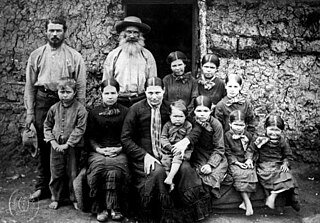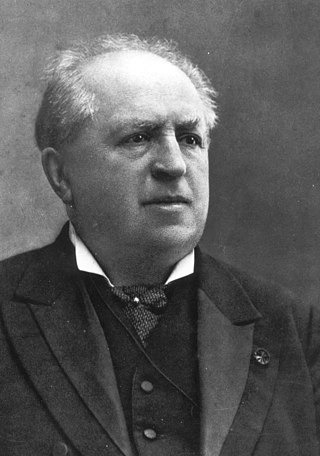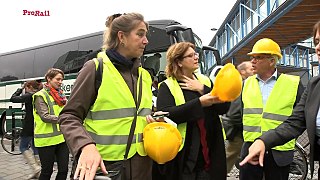Related Research Articles

Boers are the descendants of the proto Afrikaans-speaking Free Burghers of the eastern Cape frontier in Southern Africa during the 17th, 18th, and 19th centuries. From 1652 to 1795, the Dutch East India Company controlled Dutch Cape Colony, but the United Kingdom incorporated it into the British Empire in 1806. The name of the group is derived from Trekboer then later "boer", which means "farmer" in Dutch and Afrikaans.

The South African Republic, also known as the Transvaal Republic, was an independent Boer republic in Southern Africa which existed from 1852 to 1902, when it was annexed into the British Empire as a result of the Second Boer War.

The Union of South Africa was the historical predecessor to the present-day Republic of South Africa. It came into existence on 31 May 1910 with the unification of the Cape, Natal, Transvaal, and Orange River colonies. It included the territories that were formerly part of the South African Republic and the Orange Free State.

The Transvaal Colony was the name used to refer to the Transvaal region during the period of direct British rule and military occupation between the end of the Second Boer War in 1902 when the South African Republic was dissolved, and the establishment of the Union of South Africa in 1910. The borders of the Transvaal Colony were larger than the defeated South African Republic. In 1910 the entire territory became the Transvaal Province of the Union of South Africa.

Afrikaner Calvinism is a cultural and religious development among Afrikaners that combined elements of seventeenth-century Calvinist doctrine with a "chosen people" ideology based in the Bible. It had origins in ideas espoused in the Old Testament of the Jews as the chosen people.

The Orange River Colony was the British colony created after Britain first occupied (1900) and then annexed (1902) the independent Orange Free State in the Second Boer War. The colony ceased to exist in 1910, when it was absorbed into the Union of South Africa as the Orange Free State Province.

Abraham Kuyper was the Prime Minister of the Netherlands between 1901 and 1905, an influential neo-Calvinist pastor and a journalist. He established the Reformed Churches in the Netherlands, which upon its foundation became the second largest Reformed denomination in the country behind the state-supported Dutch Reformed Church.

The Ossewabrandwag (OB) was a pro-Nazi Afrikaner nationalist organization with strong ties to National Socialism, founded in South Africa in Bloemfontein on 4 February 1939. The organization was strongly opposed to South African participation in World War II, and vocally supportive of Nazi Germany. OB carried out a campaign of sabotage against state infrastructure, resulting in a government crackdown. The unpopularity of that crackdown has been proposed as a contributing factor to the victory of the National Party in the 1948 South African general election and the rise of apartheid.

The Boer republics were independent, self-governing republics formed by Dutch-speaking inhabitants of the Cape Colony and their descendants. The founders – variously named Trekboers, Boers, and Voortrekkers – settled mainly in the middle, northern, north-eastern and eastern parts of present-day South Africa. Two of the Boer republics achieved international recognition and complete independence: the South African Republic and the Orange Free State. The republics did not provide for the separation of church and state, initially allowing only the Dutch Reformed Church, and later also other Protestant churches in the Calvinist tradition. The republics came to an end after the Second Boer War of 1899–1902, which resulted in British annexation and later incorporation of their lands into the Union of South Africa.

The Afrikaner Broederbond (AB) or simply the Broederbond was an exclusively Afrikaner Calvinist and male secret society in South Africa dedicated to the advancement of the Afrikaner people. It was founded by H. J. Klopper, H. W. van der Merwe, D. H. C. du Plessis and the Rev. Jozua Naudé in 1918 as Jong Zuid Afrika until 1920, when it was renamed the Broederbond. Its influence within South African political and social life came to a climax with the 1948-1994 rule of the white supremacist National Party and its policy of apartheid, which was largely developed and implemented by Broederbond members. Between 1948 and 1994, many prominent figures of Afrikaner political, cultural, and religious life, including every leader of the South African government, were members of the Afrikaner Broederbond.

Camiel Martinus Petrus Stephanus Eurlings is a Dutch politician and businessman. A member of the Christian Democratic Appeal (CDA), he served as Minister of Transport, Public Works and Water Management from 2007 to 2010.

Dutch Canadians are Canadians with full or partial Dutch ancestry. According to the Canada 2006 Census, there were 1,035,965 Canadians of Dutch descent, including those of full or partial ancestry. This increased to 1,111,655 or about 4.2% of the entire population of Canada in 2016.

The Medalje voor de Anglo-Boere Oorlog is a South African military campaign medal. It was instituted on 21 December 1920 as a retrospective award for Boer veteran officers and men who fought in the 1899–1902 Second Boer War.
Afrikaners are a Southern African ethnic group descended from predominantly Dutch settlers first arriving at the Cape of Good Hope in 1652. Until 1994, they dominated South Africa's politics as well as the country's commercial agricultural sector.

Hans Andries de Boer is a former Dutch politician of the defunct Anti-Revolutionary Party (ARP) and later the Christian Democratic Appeal (CDA) party and trade association executive.

Bregtje Grietje "Betty" de Boer is a Dutch politician and former management consultant and civil servant. As a member of the People's Party for Freedom and Democracy she was an MP between 17 June 2010 and 23 March 2017. She focused on matters of housing.

Eppo Egbert Willem Bruins is a Dutch politician and physicist. He has been serving as Minister of Education, Culture and Science in the Schoof cabinet since July 2024 on behalf of New Social Contract (NSC). He was a member of the House of Representatives for the Christian Union (CU) from 2015 to 2021.

The Farmer–Citizen Movement is an agrarian and right-wing populist political party in the Netherlands. It is headquartered in Deventer, Overijssel. The current party leader is founder Caroline van der Plas, who has led it since its creation in 2019.

Pieter Aren Grinwis is a Dutch politician, who has been serving as a member of the House of Representatives on behalf of the Christian Union since March 2021. He previously served as a municipal councilor in The Hague and assisted the party in the House of Representatives and the Senate.

Elisabeth Marij "Lisa" Westerveld is a Dutch politician serving as a member of GroenLinks in the House of Representatives of the Netherlands since 2017. Between 2014 and 2017 she was a member of the municipality council of Nijmegen.
References
- (in Dutch) Parlement.com biography